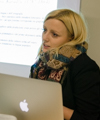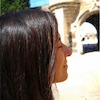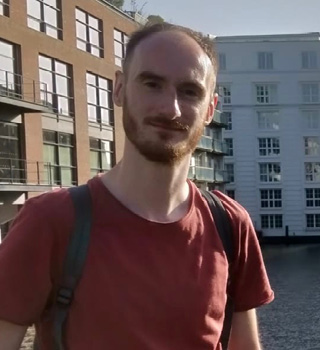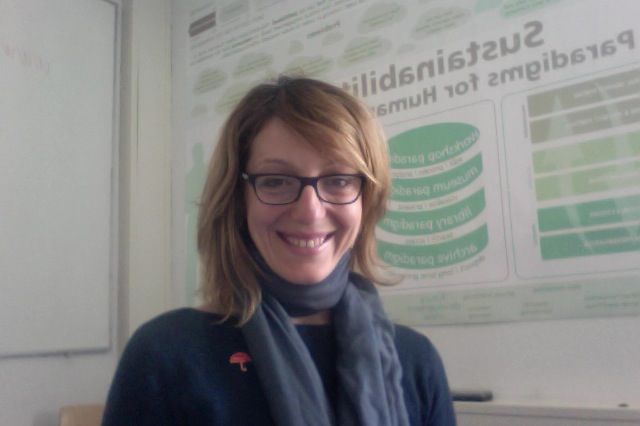Studying at the University of Verona
Here you can find information on the organisational aspects of the Programme, lecture timetables, learning activities and useful contact details for your time at the University, from enrolment to graduation.
Academic calendar
The academic calendar shows the deadlines and scheduled events that are relevant to students, teaching and technical-administrative staff of the University. Public holidays and University closures are also indicated. The academic year normally begins on 1 October each year and ends on 30 September of the following year.
Course calendar
The Academic Calendar sets out the degree programme lecture and exam timetables, as well as the relevant university closure dates..
| Period | From | To |
|---|---|---|
| I semestre | Oct 1, 2018 | Jan 12, 2019 |
| II semestre | Feb 18, 2019 | Jun 1, 2019 |
| Session | From | To |
|---|---|---|
| ESAMI LINGUE- sessione invernale | Jan 14, 2019 | Feb 16, 2019 |
| ESAMI LINGUE- sessione estiva | Jun 3, 2019 | Jul 27, 2019 |
| ESAMI LINGUE- sessione autunnale | Aug 26, 2019 | Sep 21, 2019 |
| Session | From | To |
|---|---|---|
| LAUREE LINGUE - sessione autunnale (a.a. 2017/18) | Nov 12, 2018 | Nov 17, 2018 |
| LAUREE LINGUE - sessione straordinaria (a.a. 2017/18) | Apr 1, 2019 | Apr 6, 2019 |
| LAUREE LINGUE - sessione estiva (a.a. 2018/19) | Jul 8, 2019 | Jul 13, 2019 |
| LAUREE LINGUE - sessione autunnale (a.a. 2018/19) | Nov 4, 2019 | Nov 9, 2019 |
| LAUREE LINGUE - sessione straordinaria (a.a. 2018/19) | Mar 30, 2020 | Apr 4, 2020 |
| Period | From | To |
|---|---|---|
| Festa di Ognissanti | Nov 1, 2018 | Nov 1, 2018 |
| Sospensione dell'attività didattica | Nov 2, 2018 | Nov 3, 2018 |
| Festa dell’Immacolata | Dec 8, 2018 | Dec 8, 2018 |
| VACANZE DI NATALE | Dec 22, 2018 | Jan 6, 2019 |
| VACANZE DI PASQUA | Apr 19, 2019 | Apr 23, 2019 |
| Sospensione dell'attività didattica | Apr 24, 2019 | Apr 24, 2019 |
| Festa della liberazione | Apr 25, 2019 | Apr 25, 2019 |
| Festa del lavoro | May 1, 2019 | May 1, 2019 |
| Sospensione dell'attività didattica | May 20, 2019 | May 20, 2019 |
| Festa del Santo Patrono | May 21, 2019 | May 21, 2019 |
| Festa della Repubblica | Jun 2, 2019 | Jun 2, 2019 |
| VACANZE ESTIVE | Aug 13, 2019 | Aug 18, 2019 |
Exam calendar
Exam dates and rounds are managed by the relevant Foreign Languages and Literatures Teaching and Student Services Unit.
To view all the exam sessions available, please use the Exam dashboard on ESSE3.
If you forgot your login details or have problems logging in, please contact the relevant IT HelpDesk, or check the login details recovery web page.
Academic staff
 alessandro.bigardi@univr.it
alessandro.bigardi@univr.it

Bradas Marija
 marija.bradas@univr.it
marija.bradas@univr.it
 paolamaria.caleffi@univr.it
paolamaria.caleffi@univr.it
 veronica.gobbato@univr.it
veronica.gobbato@univr.it
 tiziana.mancinelli@univr.it
tiziana.mancinelli@univr.it
 silvia.zollo@univr.it
silvia.zollo@univr.it
Study Plan
The Study Plan includes all modules, teaching and learning activities that each student will need to undertake during their time at the University.
Please select your Study Plan based on your enrollment year.
1° Year
| Modules | Credits | TAF | SSD |
|---|
1st foreign language2nd foreign literature1st foreign literature2nd foreign literature2° Year activated in the A.Y. 2019/2020
| Modules | Credits | TAF | SSD |
|---|
1st foreign language2nd foreign language1st foreign literature2nd foreign literature1 module to be chosen among the following3° Year activated in the A.Y. 2020/2021
| Modules | Credits | TAF | SSD |
|---|
1st foreign language2nd foreign languagePhilology of the 1st or 2nd language| Modules | Credits | TAF | SSD |
|---|
1st foreign language2nd foreign literature1st foreign literature2nd foreign literature| Modules | Credits | TAF | SSD |
|---|
1st foreign language2nd foreign language1st foreign literature2nd foreign literature1 module to be chosen among the following| Modules | Credits | TAF | SSD |
|---|
1st foreign language2nd foreign languagePhilology of the 1st or 2nd language| Modules | Credits | TAF | SSD |
|---|
Legend | Type of training activity (TTA)
TAF (Type of Educational Activity) All courses and activities are classified into different types of educational activities, indicated by a letter.
German literature 2 (2019/2020)
Teaching code
4S002930
Academic staff
Coordinator
Credits
9
Language
German
Scientific Disciplinary Sector (SSD)
L-LIN/13 - GERMAN LITERATURE
Period
I semestre (Lingue e letterature straniere) dal Sep 30, 2019 al Jan 11, 2020.
Learning outcomes
The course aims at introducing the students to the most important periods and trends of German 19th Century literature: Classic and Romantic literature, “Vormärz”, “Biedermeier”, Realism. At the end of the course students are required to possess a thourough knowledege of the topics we dealt with, with regard to both the literature-historic aspects as well as the works in German; moreover they are required to be capable of analysing and understanding these texts and to explainf the knowledge acquired in proper German speech.
Program
In the course, students will be introduced to various representative textual examples of epic, dramatic and lyrical German-language literature of the 19th century and in the social, cultural, economic and political background of the time.
1. Introduction: Historical, cultural-historical and social background, Political development of German-speaking countries in the 19th century, Literature at the turn of the 18th to the 19th century
2. Weimar Classicism (late works of Goethe and Schiller)
3. Between Classicism and Romanticism (Hölderlin, Kleist, Hebel, Jean Paul)
4. Early Romanticism (F. and A. W. Schlegel, Novalis, Wackenroder, Tieck)
5. Late Romanticism (Arnim, Brentano, Brothers Grimm, Eichendorff, E.T.A. Hoffmann)
6. Biedermeier (Mörike, Rückert, Droste-Hülshoff, Nestroy, Grillparzer, donors)
7. Young Germany and Vormärz (Büchner, Heine, Fallersleben, Freiligrath)
8. Realism (Fontane, Storm, Keller), Hebbel, Wagner, Nietzsche
9. Naturalism (captain, wood, sleep)
10. Literature at the turn of the 19th to the 20th century (Schnitzler, Wedekind, George, Hofmannsthal, Rilke)
During the course, a focus of attention will be on the mutual influence of works of literature and works of other art genres. On the one hand, there will be an exploration of works of fine art (including arts and crafts) and musical works that appear in literature (eg “Marmorbild” by Eichendorff, “Dornauszieher” by Kleist, “Nutcracker” by E.T.A. Hoffmann). On the other hand, should be considered situations in which literary works have been an inspiration and found their way into other artistic genres (eg in the ballet "Nutcracker" by Tchaikovsky, in the opera "Hoffmann's Tales" by Offenbach, in fairy tale films like "Snow White" by Walt Disney or in different interpretations of the "Faust" motive)
PROGRAMM (auf Deutsch)
Im Kurs werden den Studenten verschiedene repräsentative Textbeispiele der epischen, dramatischen und lyrischen deutschsprachigen Literatur des 19. Jahrhunderts vorgestellt und in den sozialen, kulturellen, wirtschaftlichen und politischen Hintergrund der Zeit eingeordnet.
`1. Einführung: Historischer, kulturgeschichtlicher und gesellschaftlicher Hintergrund, Abriss der politischen Entwicklung des deutschsprachigen Raumes im 19. Jahrhunderts, Ausgangspunkt: Literatur an der Wende vom 18. zum 19. Jahrhundert
2. Weimarer Klassik (Spätwerk von Goethe und Schiller)
3. Zwischen Klassik und Romantik (Hölderlin, Kleist, Hebel, Jean Paul)
4. Frühromantik (F. und A W. Schlegel, Novalis, Wackenroder, Tieck)
5. Spätromantik (Arnim, Brentano, Brüder Grimm, Eichendorff, E. T. A. Hoffmann)
6. Biedermeier (Mörike, Rückert, Droste-Hülshoff, Nestroy, Grillparzer, Stifter)
7. Junges Deutschland und Vormärz (Büchner, Heine, Fallersleben, Freiligrath)
8. Realismus (Fontane, Storm, Keller), Hebbel, Wagner, Nietzsche
9. Naturalismus (Hauptmann, Holz, Schlaf)
10. Literatur an der Wende vom 19. zum 20. Jahrhundert und Ausblick auf das 20. Jahrhundert (Schnitzler, Wedekind, George, Hofmannsthal, Rilke)
Ein Schwerpunkt der Betrachtung soll während des Kurses auf der gegenseitigen Einflussnahme von Werken der Literatur und Werken anderer Kunstgattungen sein. Dabei soll einerseits eine Auseinandersetzung mit Werken der bildenden Kunst (einschließlich des Kunsthandwerks) und musikalischer Werke, die in der Literatur auftauchen, stattfinden (z B. Marmorbild bei Eichendorff, Dornauszieher bei Kleist, Nussknacker bei E.T.A. Hoffmann). Andererseits sollen Situationen betrachtet werden, in denen literarische Werke Inspiration waren und Eingang fanden in andere Kunstgattungen (z.B. im Ballett „Nussknacker“ von Tschaikowski, in der Oper „Hoffmanns Erzählungen“ von Offenbach, in Märchenfilmen wie „Schneewittchen“ von Walt Disney oder in verschiedenen Interpretationen des „Faust“-Motives).
BIBLIOGRAPHIE
Balzer, B., Mertens, V. (Hg.), Deutsche Literatur in Schlaglichtern, Meyers Lexikonverlag, Mannheim/Wien/Zürich 1990.
Baumann, B, Oberle, B., Deutsche Literatur in Epochen, München 1985.
Beutin, W. Ehlert, K. (Hg.), Deutsche Literaturgeschichte. Von den Anfängen bis zur Gegenwart, Verlag Metzer, Stuttgart/Weimar 2001.
Müller H. Schlaglichter der deutschen Geschichte, Landeszentrale für politische Bildung, Mannheim 1996.
Rothmann, Kurt, Kleine Geschichte der deutschen Literatur, Stuttgart 1990
LEHRMETHODEN
Der Kurs findet in Form einer Vorlesung in deutscher Sprache statt. Die Studierenden werden gebeten die zu behandelnden Werke zu Hause als Lektüre zu lesen und sollten in der Lage sein zu den Inhalten der behandelten Werke und Epochen Stellung zu beziehen.
| Author | Title | Publishing house | Year | ISBN | Notes |
|---|---|---|---|---|---|
| Joseph von Eichendorff | Aus dem Leben eines Taugenichts | ||||
| Gerhard Hauptmann | „Die Weber“ | ||||
| Theodor Fontane | Effi Briest | Mondadori | 2003 | 88-04-51344-6 | |
| Novalis | Hymnen an die Nacht | ||||
| J.W. Grimm | Kinder und Hausmärchen |
Examination Methods
The exam is oral and takes place in German. The exam covers the entire program of the course and consists of a discussion examining and evaluating the following:
- the depth and breadth of acquired knowledge
- the ability to analyse and understand the treated literary texts
- the ability to reflect critically the literary texts and to classify it in the historical-cultural context
- the ability to express reflections and the acquired knowledge in German.
Type D and Type F activities
To discover all the teaching activities accredited by the foreign teaching college click here
Career prospects
Module/Programme news
News for students
There you will find information, resources and services useful during your time at the University (Student’s exam record, your study plan on ESSE3, Distance Learning courses, university email account, office forms, administrative procedures, etc.). You can log into MyUnivr with your GIA login details: only in this way will you be able to receive notification of all the notices from your teachers and your secretariat via email and soon also via the Univr app.
Student login and resources
Assegnazione tutore
Attività accreditate D/F
Calendario didattico dettagliato
Cambio lingua curriculare
Competenze informatiche
Competenze linguistiche (prima e seconda lingua)
Competenze linguistiche in triennale (terza lingua CFU F)
Compilazione del piano didattico
Corso di Lingua portoghese
Erasmus+ e altre esperienze all'estero
Linguistic training CLA
Graduation
List of theses and work experience proposals
| Stage | Research area |
|---|---|
| PROGETTO MAMBRINO Stage per bibliografia | Various topics |
Stage e tirocini
Nel piano didattico della laurea triennale in Lingue e culture per l’editoria (L11 ED) è previsto un tirocinio/stage obbligatorio (CFU 6).
Le attività di stage sono finalizzate a far acquisire allo studente una conoscenza diretta in settori di particolare interesse per l’inserimento nel mondo del lavoro e per l’acquisizione di abilità professionali specifiche.
Le attività di stage sono svolte sotto la diretta responsabilità di un singolo docente presso studi professionali, enti della pubblica amministrazione, aziende accreditate dall’Ateneo veronese.
I crediti maturati in seguito ad attività di stage saranno attribuiti secondo quanto disposto nel dettaglio dal “Regolamento d’Ateneo per il riconoscimento dei crediti maturati negli stage universitari” vigente.
- Tutte le informazioni in merito agli stage per futuri studenti sono disponibili alla pagina Stage e tirocini.
- Tutte le informazioni in merito agli stage per studenti iscritti sono pubblicate in MyUnivr - come fare per - stage e tirocini.
- Tutte le informazioni in merito agli stage per le aziende sono disponili alla pagina Stage e tirocini per azienze.
Ulteriori informazioni al seguente link https://www.univr.it/it/i-nostri-servizi/gestione-carriere-studenti-lingue-e-letterature-straniere/stage-e-tirocini-lingue-e-letterature-straniere

 +39 045802 8409
+39 045802 8409






























